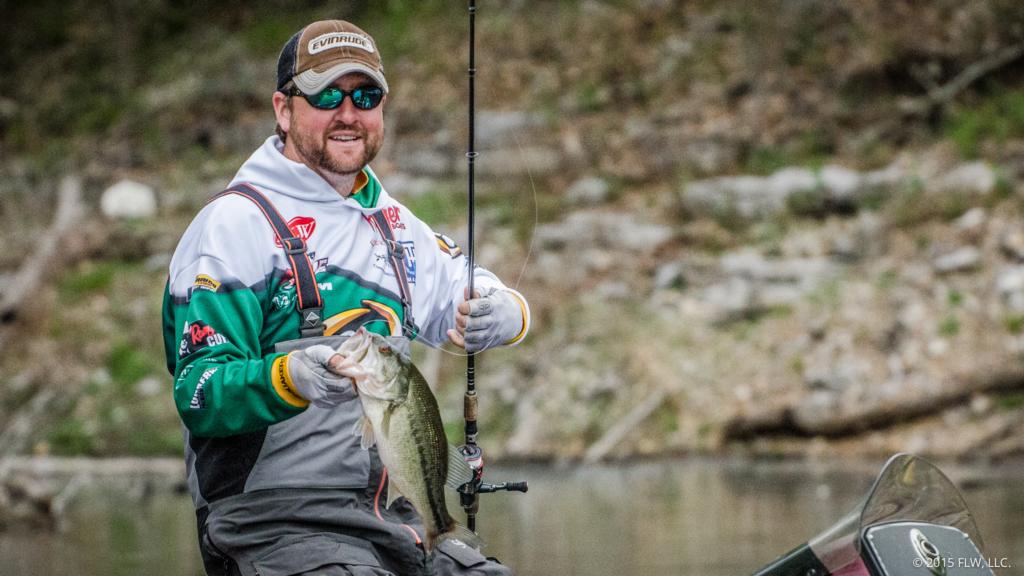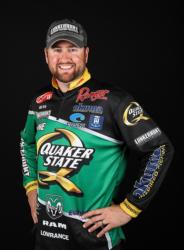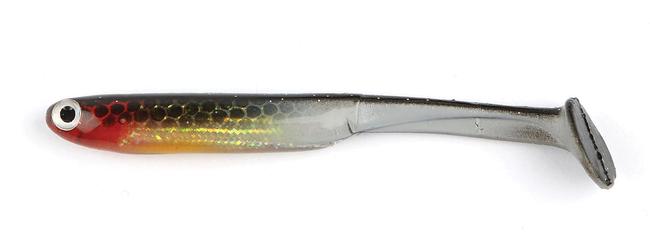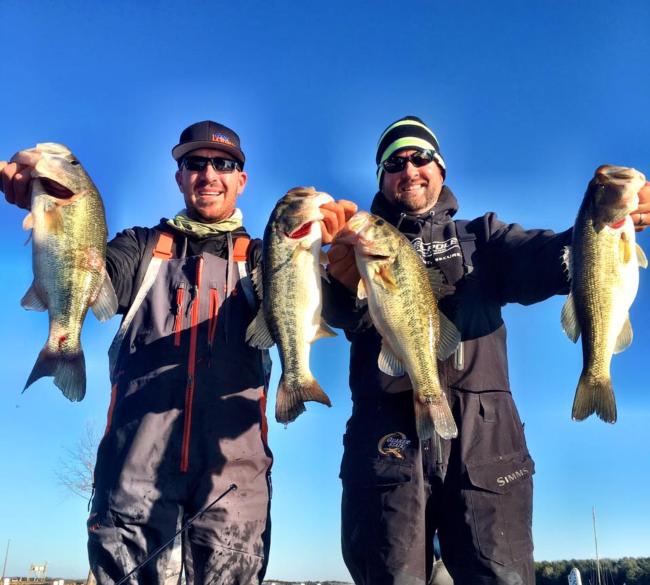Making the Most of Pre-practice
How I’ve been scouting Lake Hartwell for Walmart FLW Tour stop No. 2

(The writer's opinions and observations expressed here are his own, and do not necessarily reflect or represent the views, policies or positions of FLW.)
Stop No. 2 of the Walmart FLW Tour at Lake Hartwell is only a few weeks out, but FLW’s mandatory off-limits period starts in about a week on Feb. 29. Luckily for me, Hartwell is only about 90 minutes from my house, so I’ve been able to spend a couple of days pre-practicing without having a lot of extra expense or time away from my family. I have a couple more pre-practice days scheduled for the end of the week too.
Pre-practicing is important, but it can be challenging. Not challenging in the sense of, can I catch fish? It’s challenging because pre-practice can burn you if you don’t approach it the right way.
I know, because it’s happened to me in the past, especially early in my career. When I was getting started, I would go to a new lake and worry about catching fish and trying to figure out the winning pattern, sometimes weeks in advance.
Now I know better. After all, what good does it do to whack a bunch of fish three weeks before the tournament? So much changes over the course of a few weeks, especially in the spring.
You’ve probably heard pros talk about “fishing memories,” or “fishing with preconceived notions.” Both are potentially big mistakes that can be caused by pre-practicing with the wrong objectives.
It’s like this: If you go to the lake before the cut-off and stick a bunch of fish in Creek X on a Lunkerhunt Swim Bento, you can bet that when official practice starts it’s going to be hard to shake that memory. You’re going to want to go back to Creek X and chuck that Swim Bento. That part might not entirely be a mistake, because Creek X might be a good starting point for practice. The real mistake is when you try to force that pattern or ignore other obvious clues about what’s going on when official practice starts. That’s how fishing memories will burn you, and it’s why some pros don’t do much pre-fishing.
Wesley Strader is a good example. He doesn’t pre-fish much. Of course, in Wesley’s case, not only is he great at figuring them out “in real time” during the tournament, but he’s also been fishing the Tour since the 1990s. He’s been to every lake enough times that he already knows how most of them set up. He’s not handicapped by staying home and probably fishes better without clouding his judgment in any way.
I’m not that familiar with all the lakes on Tour, except Beaver Lake. I don’t pre-practice for Beaver because I’ve fished there enough as a co-angler and pro that I know it as well as my home lakes, and I can pattern it in three days of official practice. For most other lakes, I think pre-practice is still really important. For me, it’s all about scouting and familiarizing myself with the fishery. I don’t even have to pick up a rod. In fact, on really tough fisheries, sometimes spending a lot of hours on the water without a bite can really zap your confidence. In those cases, a little less casting and a little more studying might be a better use of pre-practice hours.
This system works for me. I like to pattern fish. That’s the way to win multiple-day events, especially in the spring, which is when I’m most comfortable. I like when I can duplicate things around the lake. When you’re more familiar with the water it helps you duplicate those things faster.
During my pre-practice trips to Hartwell I’ve split my time idling, marking brush piles, studying major creeks, trying to track down concentrations of fish and checking shoreline transitions, which tell me a lot about what’s underwater and play a big part in how I pattern fish a lot of times.
For instance, say that when I get back for the official practice I catch a fish on a secondary point dock with a red clay bank that transitions to sand right beside it. If I did right in pre-practice, I should be able to run around and check similar spots I’ve already found quickly instead of wasting time in practice looking for them in the first place.
That’s a pretty specific example, but there are other general things to learn about the different parts of the lake that help when patterning: how wind affects each area, how to navigate, water clarity and areas that clear up or dirty up first, structure, depth, water levels, and even tides, where they apply.
Those are big-picture things that stay roughly the same. The more specific details are always changing. For instance, right now I know there are fish from 2 feet deep to 50 feet deep at Hartwell. They’re all over, and they’ll be transitioning a lot by the time March 17 rolls around. Plus, there’s a lot of rain in the forecast, which is going to change things even more.
That’s why, on my first nine-hour pre-fishing day, I only spent about 30 minutes actually fishing. Most of the time, the only reason I fish is to see if a particular area has the right quality of bass to win a tournament, based on winning weights from previous events. I also like to dial in a few baits, or bait sizes or bait colors, that work and that I’m confident in, just so I don’t have to experiment with it later. It just makes me more efficient when the three-day practice begins.
My second trip down to Hartwell was a little different. Idling and looking for almost nine hours can get a little boring, so my buddy Jacob Wheeler and I decided to make things a little more interesting to help maintain our focus … and because tournament anglers are so dang competitive that we never back down from a fishing challenge. We set up a head-to-head three-fish “tournament.” The only rule: We each had to fish water that we’d never fished before.
He won, as much as I hate to admit it, but the trip was still a good one. Both of us have a decent amount of history on the lake, and this forced us to fish a lot of water we hadn’t seen before, whether it was an area that historically wasn’t good or an area that we didn’t know was there.
Looking back at when I was getting started in this business, I used to worry about catching fish in pre-practice, then I’d leave and be all spun out if I didn’t catch them. That’s a waste. It would cause me to second-guess my gut when I got back for official practice and the tournament, and you should always follow your gut.
I knew I had to change something with my pre-practice. Now I’m not fishing a lot to avoid giving myself preconceived notions. I just try to learn the lake. Then in practice I’m fishing more by the seat of my pants – following my gut – and trying to adapt to current conditions based on what I learned in pre-practice.
I’ve still got a couple of days of pre-practice ahead of me. If all goes well, I’ll lay the groundwork for a finish high enough to get back on track for qualifying for the Forrest Wood Cup. And hopefully I’ll beat Wheeler. After all, FLW doesn’t write checks for winning in practice.


